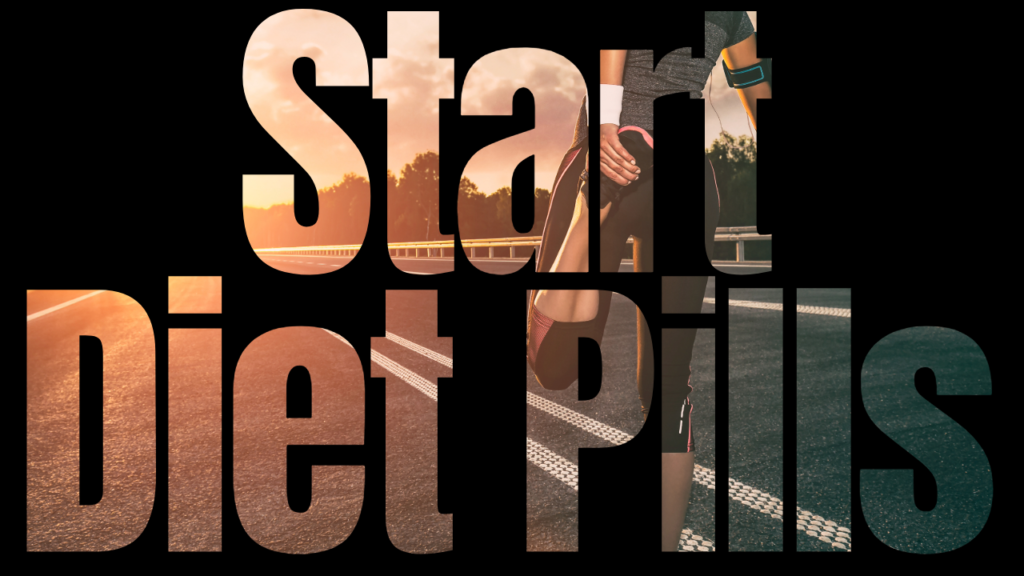Diet pills, known as fat burners or weight loss supplements, play a significant role in boosting metabolism, enhancing fat burning, controlling appetite, and supporting healthy weight loss when combined with a nutritious diet and regular exercise. Despite the potential benefits, understanding when to start diet pills, including the best fat burners and over-the-counter (OTC) diet aids, is crucial for optimum results, given that losing weight and maintaining it poses a considerable challenge due to the body’s natural responses to weight loss efforts.
The history of diet pills reveals a complex journey, with safety concerns necessitating stringent FDA guidelines for rigorous testing and review established in the late 1990s. This backdrop emphasizes the importance of making informed decisions regarding the use of appetite suppressants and other diet aids, which in some cases may help individuals lose up to 9% more of their body weight as part of a comprehensive lifestyle program.

Understanding Diet Pills and Their Purpose
Diet pills, available as prescription and over-the-counter supplements, are formulated to assist individuals in managing their weight effectively. These supplements achieve their purpose by engaging with the body’s natural processes in several ways:
- Suppressing Appetite: By reducing the urge to eat, individuals can lower their calorie intake, which is crucial for weight loss.
- Increasing Metabolism: Some diet pills boost the body’s metabolism, enabling it to burn fat more efficiently.
- Preventing Fat Absorption: Certain medications block the absorption of fat from the food consumed, which directly contributes to weight reduction.
The U.S. Food and Drug Administration (FDA) has approved a variety of medications for weight loss, which are classified based on the duration of their use:
- Short-term Use: Includes Phendimetrazine (Bontril), Diethylpropion (Tenuate), Benzphetamine (Didrex), and Phentermine (Adipex-P, Fastin).
- Long-term Use: Comprises Orlistat (Xenical, Alli), Phentermine/topiramate (Qsymia), Naltrexone/bupropion (Contrave), and Liraglutide (Saxenda).
It’s important to note that prescription weight-loss medications are most effective when combined with lifestyle modifications, such as a healthy diet, increased physical activity, and behavioral therapy. However, diet pills are not without their side effects, which can range from changes in blood pressure and heart rhythms to mood alterations. Moreover, specific groups, such as pregnant women, teenagers, and children, are advised against taking these medications.
In conclusion, while diet pills can offer a supplementary route to achieving weight loss goals, they should be considered as part of a broader strategy that includes dietary changes and exercise. Their use must be carefully managed under the guidance of a healthcare professional to maximize benefits and minimize potential risks.
Fat Burning Buying Guide

Understand the best fat burning ingredients. What are the top ingredients in the most cutting-edge fat loss supplements.
The Right Time to Consider Diet Pills
Identifying the optimal moment to incorporate diet pills into a weight management plan is pivotal for achieving desired outcomes. This decision hinges on several criteria, including Body Mass Index (BMI), existing health conditions, and lifestyle considerations:
- BMI and Health Conditions:
- Diet pills are generally recommended for individuals with a BMI of 30 or higher.
- For those with a BMI of 27 or higher accompanied by weight-related health issues such as diabetes or high blood pressure, diet pills may also be considered.
- Prescription appetite suppressants might be included in a weight-loss strategy for patients with a BMI over 30 or those with a BMI of 27 and above who have at least one weight-related medical condition.
- Lifestyle Considerations:
- Incorporating diet pills should be viewed as an adjunct to, not a substitute for, healthy lifestyle changes. This includes adhering to a low-calorie, low-fat diet and engaging in regular physical activity.
- The timing of intake can enhance the effectiveness of fat burners; they are most beneficial when taken first thing in the morning on an empty stomach or just before exercise.
- Safety and Suitability:
- It’s crucial to consult with a healthcare professional before starting any diet pill regimen to ensure it aligns with your specific health needs and conditions.
- Individuals who are pregnant, breastfeeding, or planning to become pregnant should avoid taking diet pills.
- Those with medical conditions should discuss the use of weight-loss dietary supplements with a healthcare provider to ascertain safety and appropriateness.
Given the potential long-term nature of weight loss medication use, possibly extending throughout a person’s life, the decision to begin should not be taken lightly. A healthcare professional can offer invaluable guidance in determining if weight loss medication is an appropriate component of an individual’s overall weight management strategy.
Safety and Efficacy Concerns
When considering the use of diet pills for weight management, it’s crucial to be informed about the potential side effects and safety concerns associated with these medications. Understanding these factors can help individuals make informed decisions and discuss their options with healthcare professionals.
Common Side Effects of Diet Pills:
- Increased Heart Rate and Blood Pressure: Many diet pills can cause an increase in heart rate and blood pressure, leading to potential cardiovascular concerns.
- Insomnia: The stimulants in some weight loss supplements can disrupt sleep patterns, leading to insomnia.
- Nutrient Deficiencies: Fat-soluble vitamins may not be absorbed properly when taking certain medications like orlistat, necessitating supplementation.
- Gastrointestinal Issues: Some individuals may experience nausea, bloating, diarrhea, and cramping as side effects of these medications.
Specific Ingredients and Their Concerns:
- Chromium Picolinate: Though claimed to aid in weight loss by enhancing insulin function and reducing appetite, its effectiveness is questionable.
- Conjugated Linoleic Acid (CLA): May help reduce body fat but could increase insulin resistance and lower ‘good’ cholesterol with long-term use.
- Green Coffee Extract: Can lead to modest weight loss but may cause headaches, stomach upset, and abnormal heart rhythms due to caffeine.
- Herbal Laxatives and Diuretics: Often found in weight loss supplements, they may cause dependency, dehydration, and electrolyte imbalance.
Safety Considerations and Interactions:
- Medication Interactions: Weight-loss dietary supplements can interact with other medications, potentially leading to adverse effects.
- Regulatory Concerns: The Dietary Supplement Health and Education Act of 1994 allows the sale of diet pills without stringent government regulation, raising concerns about the efficacy and safety of these products.
- FDA Warnings: The FDA has linked certain weight-loss drugs to serious health risks, including 80 deaths and 800 adverse reactions associated with ephedra since 1994.
Given these concerns, individuals should consult with healthcare professionals before starting any diet pill regimen. This consultation can help ensure the chosen supplements are appropriate for the individual’s health status and do not interfere with existing medications or conditions.

Top Diet Pill Ingredients for Weight Management
In the quest for effective weight management, the ingredients within diet pills play a pivotal role. Here’s a closer look at some of the top components found in weight loss supplements, their purported benefits, and the research backing their efficacy:
- Fiber-Based Ingredients for Satiety and Fat Blocking:
- Chitosan claims to block fats and cholesterol from being absorbed, though its effectiveness in weight loss is limited.
- Glucomannan, from the konjac plant, aims to prevent fat absorption and increase feelings of fullness, yet evidence of its effectiveness for weight loss is insufficient.
- Guar Gum, derived from the guar plant, also prevents fat absorption and promotes satiety but is possibly ineffective for weight loss.
- Metabolism Boosters and Appetite Suppressants:
- Caffeine is a common stimulant in weight loss supplements, intended to increase energy and calorie burning, but may lead to increased blood pressure and heart rate.
- Capsaicin, from chili peppers, is thought to enhance metabolism, suppress hunger, and boost fat burning, though further research is needed.
- Green Tea Extract and Catechins, also aim to curb appetite and enhance fat and calorie metabolism, yet their effectiveness requires more evidence.
- Emerging Ingredients with Potential Benefits:
- African Mango (Irvingia gabonensis) shows promise in inhibiting fat production and reducing leptin levels, potentially leading to modest body weight and waist circumference reduction, with no safety concerns up to 3,150 mg/day for 10 weeks.
- Beta-glucans are known to increase satiety and slow glucose absorption, although they don’t directly affect body weight.
- Calcium may increase fat breakdown and reduce fat accumulation and absorption, yet it doesn’t significantly impact body weight or weight loss according to clinical trials.
- Semaglutide-based Medications (Ozempic and Wegovy) act by signaling the brain about meal consumption, reducing hunger and aiding in weight management.
- Acetyl L-Carnitine and CLA target stored body fat as an energy source, featured in some fat burners.
This detailed breakdown underscores the importance of understanding the specific actions and research backing each ingredient in weight loss supplements. While some ingredients show promise, others require further study to confirm their effectiveness and safety for weight management.
Featured Ephedra Fat Burner with Hydroxytrol

With 50mg of real ephedra, it’s the ultimate weight loss solution. Produced by Foundation Nutriceuticals, a leader in ephedra manufacturing, Hydroxytrol combines ephedra’s metabolism-boosting power with L-carnitine’s fat-burning abilities.
Steps to Take Before Starting Diet Pills
Before embarking on a journey with diet pills, it’s essential to lay the groundwork for a safe and effective experience. Here are key steps to consider:
- Consultation and Health Check-Up:
- Always consult a healthcare professional before starting any diet pills to ensure it aligns with your health needs and conditions.
- Schedule an appointment with a dietitian for a personalized meal plan, especially if you’re aiming for weight loss with medication.
- Understanding the Product:
- Carefully check the ingredients list for any allergens or substances you may be sensitive to. This is crucial to avoid adverse reactions.
- Follow the recommended dosage strictly. Do not exceed the stated dose or take the pills more frequently than recommended to prevent side effects.
- Lifestyle Adjustments:
- Prepare for a possible initial increase in appetite, a common side effect of some diet pills. Being mentally prepared can help you manage this phase better.
- Combine diet pills with a balanced diet and regular exercise for optimal results. Prioritize protein, focus on whole grains, include dairy, and stay hydrated.
- Aim to eat a diverse range of vegetables and healthy proteins as the foundation of your diet, ensuring you consume 1,200 to 1,800 calories a day depending on your initial weight.
- Monitoring and Adjusting:
- Monitor your body’s response to the diet pills and report any unusual symptoms to your healthcare provider. This includes severe side effects or a lack of desired results after a reasonable trial period.
- Be aware that diet pills are not a long-term solution for weight loss and should be used in conjunction with lifestyle changes. They should be part of a lifelong plan that includes a healthy diet, regular exercise, adequate sleep, and stress reduction.
- Storage and Usage:
- Store diet pills in a cool, dry place, out of reach of children and pets, to maintain their efficacy and prevent accidental ingestion.
By taking these preparatory steps, individuals can navigate the world of diet pills more safely and effectively, ensuring that any use of weight loss supplements is part of a broader, healthier lifestyle change.
Top Ten Products
Unlock your ultimate weight loss potential with Top Ten Ephedra, the elite range of diet pills and fat burners. Featuring premium brands like Green Stinger, Hellfire Ephedra, and Hydroxytrol, these products are crafted to deliver powerful results. Each supplement in our Top Ten list is formulated with ephedra extract, ephedra leaves, or Ma Huang extract to supercharge your metabolism and help you shed those stubborn pounds.
Discover the best deals on top sellers: Green Stinger by Schwartz Labs (120ct) now only $47.75, or try the Hellfire Ephedra for just $38.50. For a classic choice, opt for Hydroxytrol 50mg Ephedra (120ct) at $39.99.
Don’t miss out on Pure Ephedra 100 (120ct) for $37.95 or the high-octane EPH 100 reduced to $32.99.
Elevate your fitness journey with our top-rated ephedra supplements – your secret weapon against unwanted fat.
Top Ten Ephedra:
- Green Stinger Ephedra – $47.75
- Hellfire Ephedra 150mg – $38.50
- Hydroxytrol 50mg Ephedra – $39.99
- Pure Ephedra 100 – $37.95
- EPH 100 – $32.99
- Black Mamba Hyperrush 65mg Ephedra – $38.50
- Black Widow 25mg Ephedra – $38.50
- ECA Xtreme 25mg Ephedra – $39.75
- High Octane Ephedra 100 – $37.46
- Lipodrene 25mg Ephedra – $39.95
Nirvana Boost Mood Pills

Elevate your spirits with Nirvana Boost Mood Pills! Designed to enhance your mood and well-being, each capsule contains an 800mg proprietary blend to keep you uplifted for up to 10 hours.
Right Dosage for Optimal Fat Loss
Designing a clinical study for dietary supplements is a meticulous process that can significantly impact the effectiveness and safety of weight loss products. The journey from preclinical studies to human trials is fraught with complexities, particularly when it comes to determining the right dosage for optimal fat loss results. For instance, researchers studying an extract from *Artemisia dracunculus L.* for its potential in managing metabolic syndrome faced numerous challenges in translating animal studies to human trials. A critical aspect of this process is **allometric scaling**, a method used to estimate human equivalent doses (HED) based on animal studies. This calculation considers factors like body surface area and weight, ensuring that the dosage is both effective and safe for human consumption.
However, it’s not just about the numbers. The timing of supplement administration can be just as crucial as the dose itself. For those seeking to shed pounds, understanding when to take a supplement in relation to meals or exercise can make a significant difference in its efficacy. Moreover, safety is paramount in these studies. Researchers often incorporate additional safety factors, sometimes reducing the maximum recommended starting dose by a factor of 10 or even 100 for first-time use in humans. This cautious approach is essential to protect participants and ensure that weight loss supplements don’t cause unintended harm.
For dieters and those focused on fat loss, these rigorous clinical studies are the backbone of developing safe and effective supplements. By paying attention to these often-overlooked details, researchers can design trials that not only advance scientific understanding but also provide practical, reliable solutions for weight management. The next time you consider a dietary supplement for your weight loss journey, remember the extensive research and careful considerations that have gone into determining its safety and efficacy.
Conclusion
Through this comprehensive exploration, it has become evident that diet pills, when utilized correctly and under professional guidance, can serve as a valuable adjunct to traditional weight-loss methods, including diet and exercise. The journey through understanding the optimal timing for starting diet pills, alongside an examination of the various ingredients and their efficacy, underscores the importance of making informed choices in one’s weight management journey. The significance of considering the safety and potential side effects, combined with the necessity of lifestyle changes, forms the crux of achieving and maintaining healthy weight goals.
As we conclude, it is imperative to reiterate the call for individual discretion and consultation with healthcare professionals before embarking on any weight-loss regimen involving diet pills. The promise held by these supplements must not overshadow the essential pillars of a balanced diet, exercise, and overall well-being. In navigating the path to weight loss, it is the combination of knowledge, informed choices, and sustained lifestyle modifications that paves the way to success, rather than reliance on any single solution.
References
Supplemental Products Used for Weight Loss https://doi.org/10.1331/154434504322713246
2013 AHA/ACC/TOS Guideline for the Management of Overweight and Obesity in Adults A Report of the American College of Cardiology/American Heart Association Task Force on Practice Guidelines and The Obesity Society https://doi.org/10.1161/01.cir.0000437739.71477.ee
Why US adults use dietary supplements DOI: 10.1001/jamainternmed.2013.2299
Ríos-Hoyo, A., Gutiérrez-Salmeán, G. New Dietary Supplements for Obesity: What We Currently Know. Curr Obes Rep 5, 262–270 (2016). https://doi.org/10.1007/s13679-016-0214-y
Designing a Clinical Study With Dietary Supplements: It’s All in the Details https://doi.org/10.3389/fnut.2021.779486



